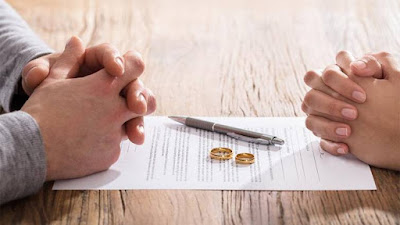How can a Woman Ensure the Protection of Her Rights in the Khula process?
Introduction:
Ensuring the protection of her rights in the Khula Procedure in Pakistan is crucial for a woman seeking a divorce in Pakistan. Here are several steps she can take to safeguard her rights throughout the Khula proceedings:
1. Seek Legal Advice:
- Consult with a Family Law Attorney: The woman needs to seek legal advice from a qualified family law attorney who specializes in Khula cases. An attorney can explain her rights, guide her through the legal process, and advocate for her interests in court.
2. Understand Legal Rights:
- Educate Yourself: The woman should educate herself about her legal rights under Islamic law and Pakistani family law. Understanding her rights regarding Khula, custody, alimony, and property division empowers her to make informed decisions.
3. Gather Documentation:
- Collect Evidence: If there are specific grounds for Khula, such as cruelty or neglect, the woman should gather relevant documentation or evidence to support her case. This may include medical records, witness statements, financial documents, or communication records.
4. Maintain Records:
- Document Communications: Keep records of all communications related to the Khula proceedings, including emails, letters, and court documents. This helps ensure clarity and accountability throughout the process.
5. Advocate for Fair Treatment:
- Assertiveness in Court: During court hearings, the woman should assertively advocate for her rights and interests. She should clearly communicate her preferences regarding custody, alimony, and other relevant matters.
6. Demand Privacy and Dignity:
- Respect for Privacy: The woman has the right to privacy and dignity throughout the Khula process. She should demand respectful treatment from all parties involved, including legal professionals, court personnel, and family members.
7. Attend Court Hearings:
- Active Participation: Attend all court hearings related to the Khula proceedings. Active participation ensures that the woman's voice is heard and that she has the opportunity to present her case effectively.
8. Consider Mediation:
- Explore Mediation: If appropriate, consider mediation as an alternative dispute resolution method. Mediation allows the parties to negotiate a mutually acceptable agreement with the assistance of a neutral mediator.
9. Prioritize Children's Best Interests:
- Focus on Children: If children are involved, prioritize their best interests throughout the Khula Procedure in Lahore. Advocate for fair custody arrangements and ensure that their needs and welfare are considered by the court.
10. Maintain Emotional Support:
- Seek Emotional Support: Going through Khula proceedings can be emotionally challenging. The woman needs to seek emotional support from trusted friends, family members, or support groups to help her cope with stress and anxiety.
11. Follow Legal Procedures:
- Adhere to Legal Requirements: Ensure compliance with all legal procedures and deadlines associated with Khula proceedings. Failure to follow legal requirements may delay the process or negatively impact the outcome.
12. Stay Informed:
- Stay Updated: Stay informed about the progress of the Khula proceedings and any developments in the case. Regular communication with legal representatives helps the woman stay updated and actively involved in decision-making.
Conclusion:
By taking proactive steps to educate herself, seek legal advice, gather evidence, advocate for her rights, and prioritize her well-being and that of any dependent children, a woman can ensure the protection of her rights throughout the Khula process. The esteemed team of expert lawyers at Khadija Law Associates excels in providing exceptional legal services to clients dealing with family disputes.It's essential to approach Khula proceedings with clarity, determination, and a commitment to securing a fair and just resolution to the divorce.





Comments
Post a Comment